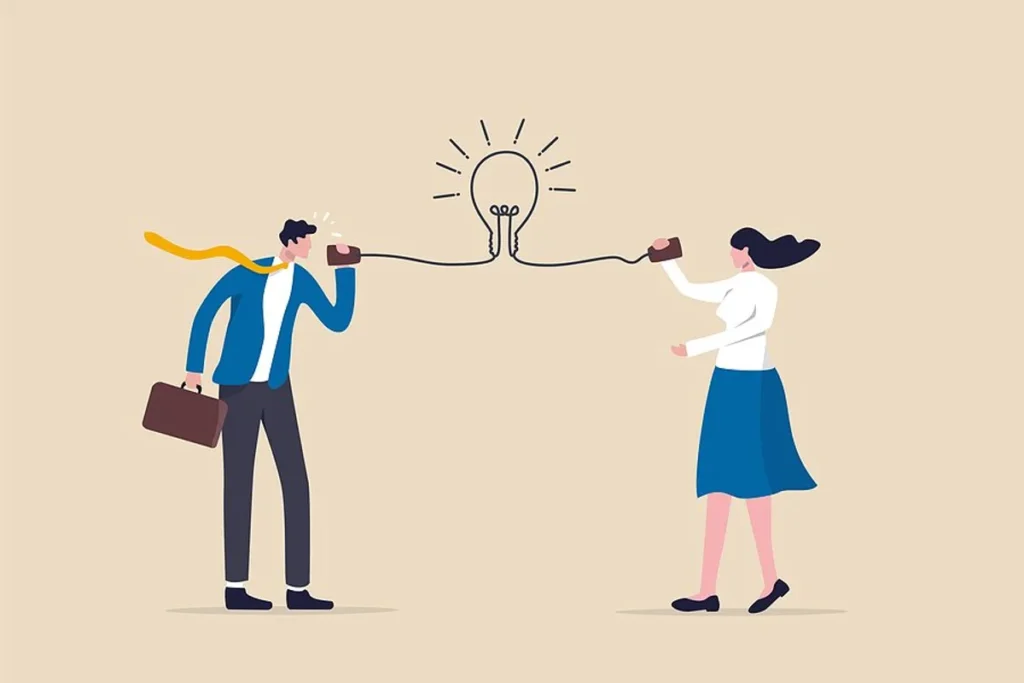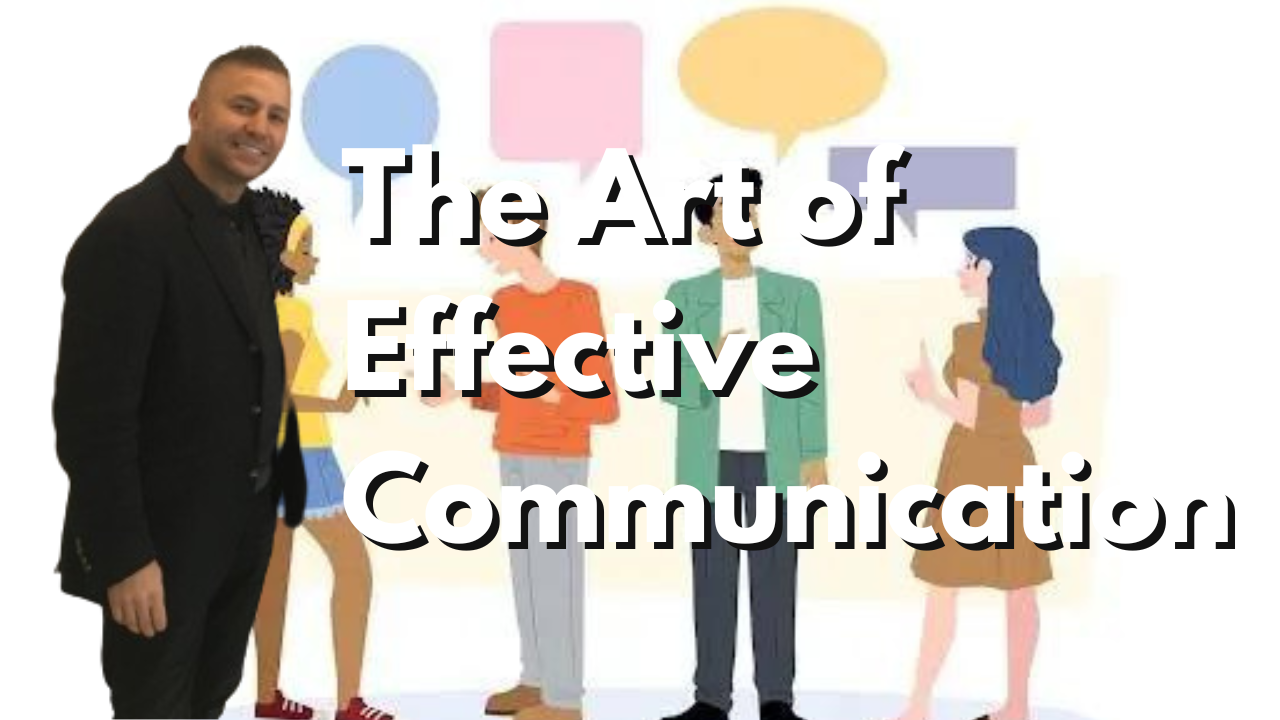
Effective communication is the cornerstone of successful relationships, both personal and professional. It encompasses more than just speaking or listening—it involves understanding, empathy, and the ability to convey messages clearly and respectfully. In this blog post, we’ll explore the art of effective communication, discuss its importance in building stronger connections and resolving conflicts, and provide practical strategies for improving communication skills in various aspects of life.
Understanding Effective Communication:
- Clear and Concise Expression: Effective communication begins with clear and concise expression of thoughts, ideas, and emotions. It involves using language that is easily understood by the intended audience, avoiding jargon or complex terminology that may cause confusion. Clarity in communication helps ensure that messages are conveyed accurately and without ambiguity, fostering mutual understanding and trust.
- Active Listening: Listening is an essential component of effective communication. Active listening involves fully engaging with the speaker, paying attention to both verbal and nonverbal cues, and demonstrating empathy and understanding. It requires suspending judgment, refraining from interrupting, and paraphrasing or summarizing the speaker’s message to confirm understanding. By actively listening, we show respect for the speaker and create an environment conducive to open and honest dialogue.
- Empathy and Understanding: Empathy is the ability to understand and share the feelings of another person. In communication, empathy plays a crucial role in building rapport, fostering trust, and strengthening relationships. By putting ourselves in the shoes of others and acknowledging their perspectives, we demonstrate empathy and validate their experiences, leading to deeper connections and more meaningful interactions.
- Nonverbal Communication: Nonverbal communication encompasses body language, facial expressions, gestures, and tone of voice, all of which convey important messages in communication. Paying attention to nonverbal cues can provide valuable insights into the speaker’s emotions, intentions, and underlying meaning. By aligning our nonverbal communication with our verbal messages, we ensure congruence and authenticity in our interactions.
Benefits of Effective Communication:

- Building Stronger Connections: Effective communication fosters stronger connections and deeper relationships with others. By expressing ourselves clearly, actively listening, and demonstrating empathy and understanding, we create an environment of trust and mutual respect. Strong connections are the foundation of healthy relationships, whether with family members, friends, colleagues, or romantic partners.
- Resolving Conflicts: Conflict is inevitable in any relationship, but effective communication can help resolve conflicts constructively and peacefully. By communicating openly and honestly about our concerns, listening to the perspectives of others, and seeking common ground, we can find solutions that satisfy the needs of all parties involved. Effective communication allows us to address misunderstandings, clarify expectations, and repair damaged relationships.
- Enhancing Collaboration and Teamwork: In professional settings, effective communication is essential for enhancing collaboration and teamwork. By sharing information, exchanging ideas, and coordinating efforts effectively, teams can achieve common goals more efficiently and productively. Effective communication promotes a culture of transparency, accountability, and innovation, driving organizational success and growth.
- Improving Personal and Professional Growth: Effective communication is a fundamental skill that contributes to personal and professional growth. By honing our communication skills, we become better equipped to navigate social interactions, negotiate conflicts, and advocate for our needs and interests. Effective communicators are more likely to succeed in their careers, build strong networks, and influence others positively.
Strategies for Improving Communication Skills:
- Practice Active Listening: Make a conscious effort to practice active listening in your interactions with others. Focus on the speaker, maintain eye contact, and avoid distractions. Ask clarifying questions, paraphrase or summarize the speaker’s message, and provide feedback to demonstrate understanding. Practice empathy by acknowledging the speaker’s emotions and validating their experiences.
- Be Clear and Concise: When communicating, strive to be clear, concise, and to the point. Organize your thoughts before speaking or writing, and use simple language that is easily understood by your audience. Avoid vague or ambiguous statements, and provide specific examples or evidence to support your points. Be mindful of your tone and body language, as they can influence how your message is received.
- Seek Feedback and Learn from Mistakes: Seek feedback from others on your communication style and effectiveness. Ask for constructive criticism and be open to suggestions for improvement. Reflect on past communication experiences, both successes and failures, and identify areas for growth. Learn from your mistakes and strive to apply lessons learned in future interactions.
- Practice Empathy and Understanding: Cultivate empathy and understanding in your interactions with others. Put yourself in the shoes of the other person and try to see things from their perspective. Listen without judgment, validate their feelings, and respond with compassion and empathy. Show genuine interest in their experiences and emotions, and strive to build rapport and trust.
- Develop Nonverbal Communication Skills: Pay attention to your nonverbal communication cues and their impact on others. Practice maintaining good posture, making eye contact, and using facial expressions and gestures to convey warmth and openness. Be aware of your tone of voice and its effect on the tone and mood of the conversation. Align your nonverbal cues with your verbal messages to ensure clarity and authenticity.
Conclusion: Effective communication is a vital skill that enhances relationships, resolves conflicts, and drives personal and professional success. By mastering the art of effective communication, we can build stronger connections with others, navigate challenges more effectively, and achieve our goals with confidence and clarity. By prioritizing clear expression, active listening, empathy, and nonverbal communication, we can cultivate an environment of trust, understanding, and collaboration in all areas of our lives. So take the time to hone your communication skills, and reap the rewards of stronger relationships, greater influence, and enhanced well-being.

